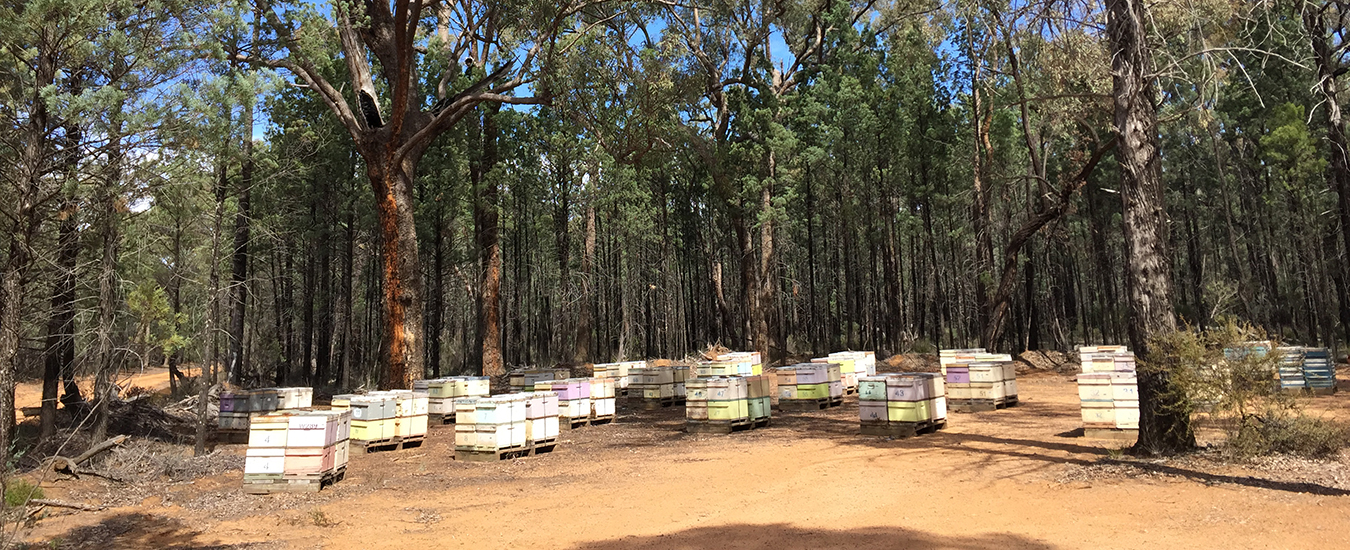Public land covers 63% of Australia’s land mass as of 2015 and is an essential resource for the beekeeping industry. Bees require floral resources year round, meaning beekeepers often have to migrate their honey bees to access good floral resources. Whilst pollination contracts allow bees to access flowering crops, this is only for specific times of the year and a single crop nutritional source may harm honey bee colonies. As such, public land which contains floral diversity with access to native flora like eucalypts and other low lying vegetation becomes important for honey bee health.
Tenured land (or land tenure) refers to the conditions and length of time in which the public land is leased, licensed, or permitted to the community for use, including beekeeping. Each state and territory has their own regulations for beekeepers on obtaining permission to access public land.
An AgriFutures Australia publication in May 2022 reviewed the current tenures available for Australian beekeepers and potential opportunities. The key points found were:
- Beekeepers do not enjoy the same conditions for their use of public land as other users and stakeholders. For instance, there is no compensation from the state if resource quality is impacted or degraded
- Upgrading from apiary permits to licenses or leases to secure more stability is legally difficult.
There are several recommendations and opportunities for improving beekeeper access and conditions to public land:
- Communication by beekeepers to industry bodies such as Australian Honey Bee Industry Council to encourage them to induce change by state beekeeping associations
- Strengthening apiary permits via more favourable policy and conditions including compensation or alternate sites when the floral resources are unavailable
- Securing tenures in the form of leases or licenses rather than permits as permits can be terminated on short notice
- Allow a transfer of apiary sites between beekeepers.
There is good reason for the Australian beekeeping industry to pursue action in improving tenure and public land access. Given the impact of natural disasters such as the 2019-20 bushfires on the industry, there is a need for increased access to floral resources. In addition to providing hive products, honeybees have an undeniable importance to pollination, being responsible for 65% of agricultural production in Australia. Public land access will contribute $9 billion annually to the economy from pollination services. Securing better access to public land use will benefit the beekeeping industry immensely.
Video: Where would we be without bees? AgriFutures Australia
Acknowledgements:
- Clarke (2020a) Bushfire Recovery Plan: Understanding what needs to be done to ensure the honey bee and pollination industry recovers from the 2019-20 bushfire crisis, AgriFutures Australia, Wagga Wagga
- Clarke (2020b) Opportunities to improve access to floral resources for beekeepers on public lands, AgriFutures Australia, Wagga Wagga
- Phelan, Clarke. (2022) Review of the security of tenure for apiary on public lands, AgriFutures Australia, Wagga Wagga
- RIRDC. (2010) Pollination Fact sheet, Rural Industries Research and Development Corporation, Barton
- This article was peer-reviewed by Casey Cooper and Nadine Chapman.
- Main image courtesy Elizabeth Frost, NSW Department of Primary Industries


